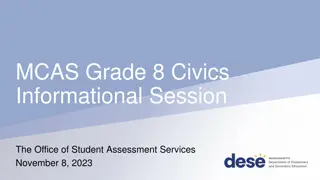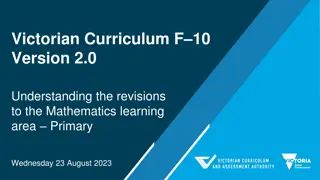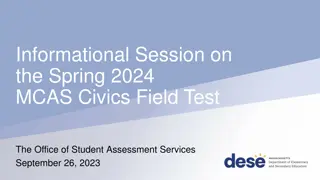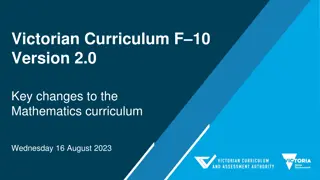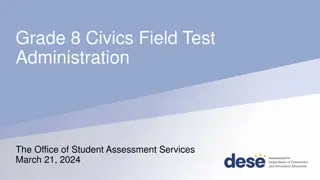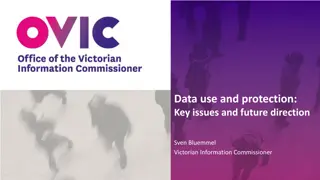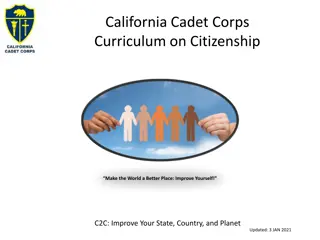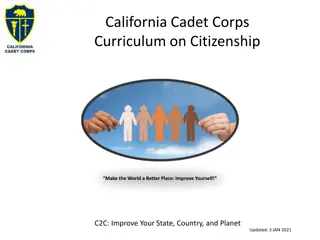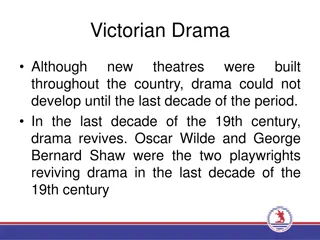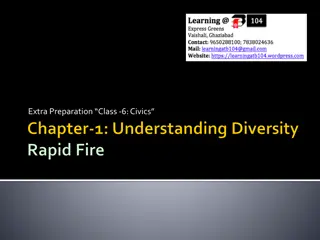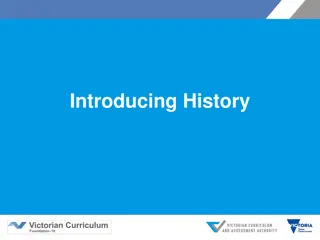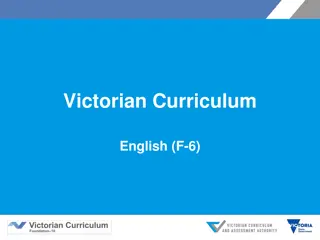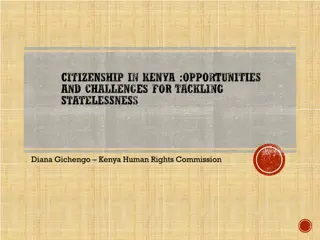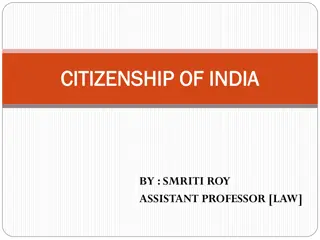Understanding Civics and Citizenship in Victorian Curriculum
Explore the aims, structure, and key messages of Civics and Citizenship in the Victorian Curriculum, focusing on developing students' understanding of democratic principles, civic engagement, and responsible participation in society. The curriculum emphasizes civic identity, rights and responsibilities, and the importance of values such as freedom, equality, and tolerance. Students are encouraged to connect classroom learning with real-world events and issues at local, national, and global levels.
Download Presentation

Please find below an Image/Link to download the presentation.
The content on the website is provided AS IS for your information and personal use only. It may not be sold, licensed, or shared on other websites without obtaining consent from the author. Download presentation by click this link. If you encounter any issues during the download, it is possible that the publisher has removed the file from their server.
E N D
Presentation Transcript
Introducing Civics and Citizenship
Victorian Curriculum F10 Released in September 2015 as a central component of the Education State Provides a stable foundation for the development and implementation of whole-school teaching and learning programs The Victorian Curriculum F 10 incorporates the Australian Curriculum and reflects Victorian priorities and standards http://victoriancurriculum.vcaa.vic.edu.au/
Aims Civics and Citizenship aims to ensure students develop: a lifelong sense of belonging to, and engagement with, civic life as an active and informed citizen in the context of Australia as a secular democratic nation with a dynamic, multicultural and multi-faith society knowledge, understanding and appreciation of the values, principles, institutions and practices of Australia s system of democratic government and law, and the role of the citizen in Australian government and society skills necessary to investigate contemporary civics and citizenship issues, and foster responsible participation in Australia s democracy the capacities and dispositions to participate in the civic life of their nation at a local, regional and global level.
Structure Strands Government and Democracy Laws and Citizens Citizenship, Diversity and Identity Achievement standards The first achievement standard is at Level 4, and then at Levels 6, 8 and 10.
Key messages Students explore and develop their understanding and viewpoints about: civic identity roles in the community the rights and responsibilities of citizens developing their connections to the school and community values which underpin democratic communities such as freedom, equality, responsibility, accountability, respect, tolerance and inclusion skills and knowledge in making judgments, forming conclusions and making plans for action their sense of school, community and civic engagement and participation.
Key messages Students will build on their experience, knowledge and skills as they commence Civics and Citizenship in Year 3 and/or Year 4 Making connections between what is learned in class and events and issues that are occurring in the local area, Australia and the world is vital There are strong connections to the History and Intercultural Capability curriculums


